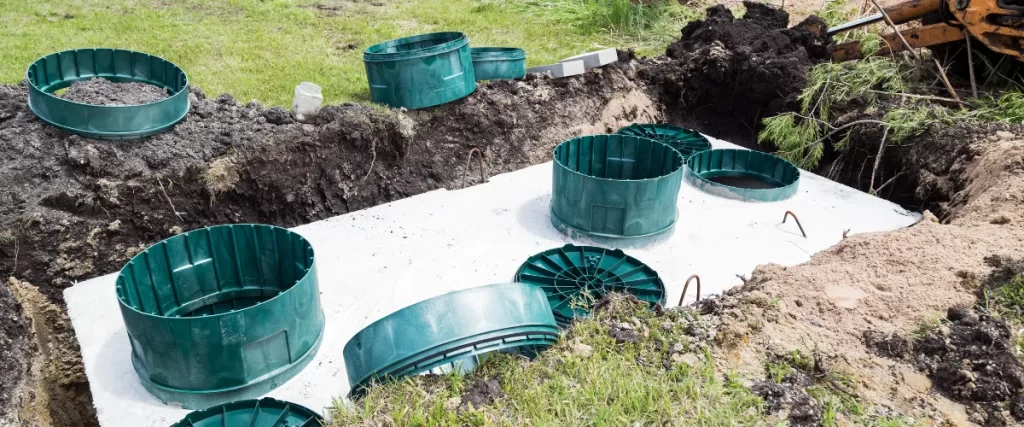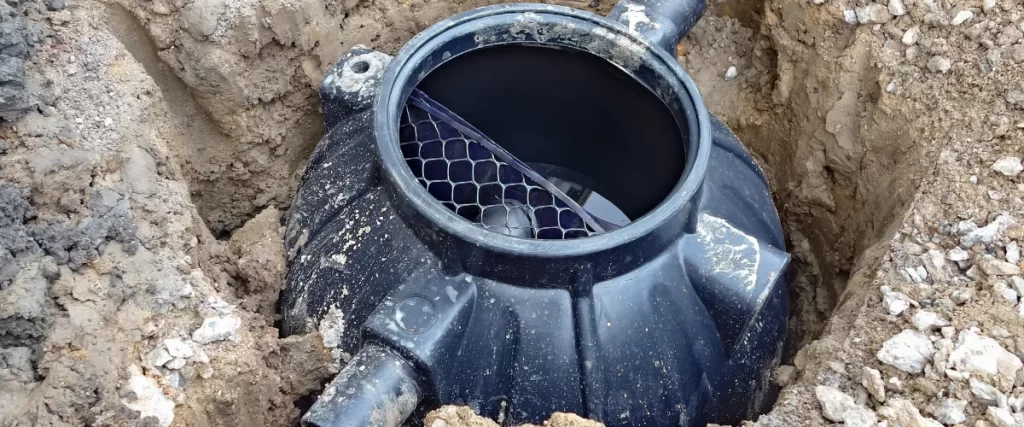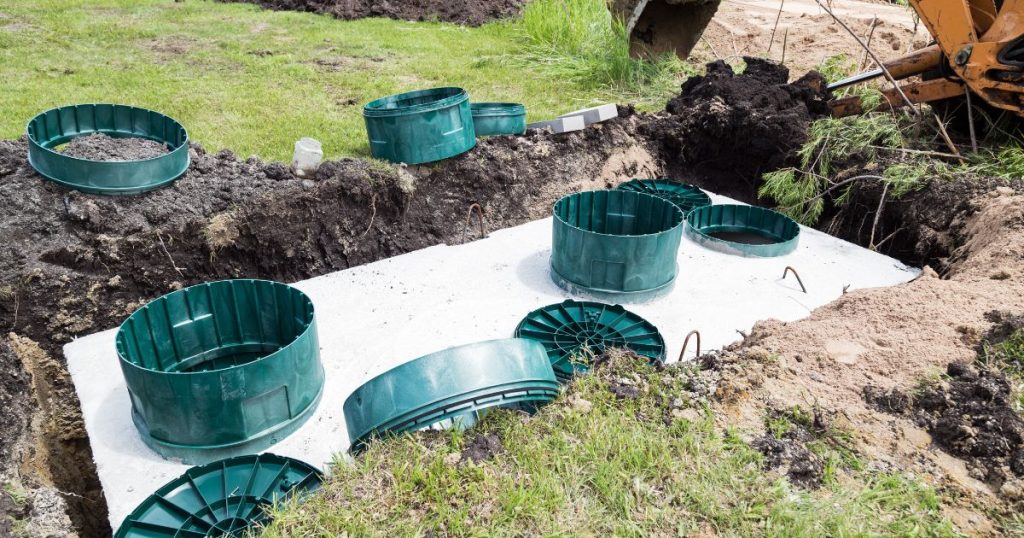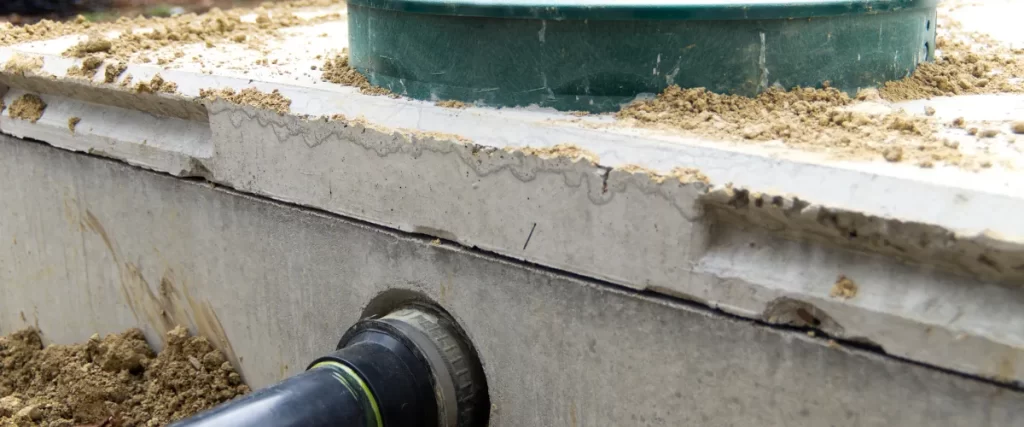When planning a septic system installation in Aurora, timing is everything. Choosing the best season for your septic installation not only affects the construction process but also impacts system performance, longevity, and overall cost-effectiveness.
In this comprehensive guide, we’ll explore seasonal considerations, local weather impacts, and key factors that Aurora homeowners should evaluate when scheduling a septic system installation.
Whether you’re building a new home or upgrading your existing system, understanding the optimal time of year to install your septic system can save you money, reduce complications, and ensure your system operates efficiently for years to come.

Understanding Aurora’s Climate and Seasonal Variations
Aurora, CO experiences a mix of weather conditions throughout the year. With cold, snowy winters, moderate springs, hot summers, and cool autumns, each season presents unique challenges and opportunities for septic system installation.
Winter
While winter might seem like a challenging time due to freezing temperatures and potential snow, it can offer some benefits. For example, the cold weather can help stabilize soil conditions during excavation and installation.
However, frozen ground can also complicate trenching and system placement, requiring specialized equipment and expertise. In addition, the winter season might extend project timelines due to weather delays.
Spring
Spring in Aurora is often characterized by rapid snowmelt and increased rainfall. While these conditions are beneficial for the environment, they can pose risks during installation. Excess moisture in the soil can lead to unstable ground conditions and prolonged drying times for concrete and backfill.
Yet, with careful planning, spring installations can work if the soil has adequately thawed and the weather is stable.
Summer
Summer is generally the most favorable season for installing a septic system in Aurora. Warmer temperatures mean that the ground is more workable, and dry conditions help ensure that installation materials, such as concrete and backfill, cure properly.
Moreover, the longer daylight hours and predictable weather patterns during summer reduce the likelihood of delays. However, high temperatures can also pose challenges, such as increased water usage and potential strain on the system once it is operational.
Autumn
Autumn provides a transitional period with moderate weather, making it another good option for septic system installation. The temperatures are typically mild, and the risk of heavy rain or rapid snowmelt is lower compared to spring. This season can offer a balance between workable soil conditions and fewer weather-related delays.
However, shorter daylight hours and the onset of cooler weather later in the season should be considered.

Comparing the Pros and Cons by Season
Choosing the right season involves weighing the benefits and drawbacks of each period. The table below summarizes the key considerations:
| Season | Advantages | Disadvantages |
| Winter | – Stable soil conditions in cold- Potentially lower contractor demand | – Frozen ground complicates excavation- Weather delays and longer project timeframes |
| Spring | – Thawed ground- Opportunity to prepare for the summer system performance | – Excess moisture in soil- Unpredictable weather with rapid snowmelt |
| Summer | – Ideal working conditions with dry, workable soil- Predictable weather and long daylight hours | – High temperatures can strain installation materials- Potential increased water usage impacting system demand |
| Autumn | – Mild, stable weather- Balanced ground conditions and fewer delays | – Shorter daylight hours- Weather begins to cool, potentially affecting curing times |
Key Factors Influencing Installation Timing
In addition to seasonal weather patterns, several other factors determine the best time to install a septic system in Aurora.
Soil Conditions
Soil testing is a crucial first step. The absorption capacity, composition, and moisture content of the soil greatly influence septic system design and installation. During summer and autumn, soils are usually at their best for construction because they’re not too dry or overly saturated. In contrast, winter soils might be too hard and spring soils too wet, complicating the installation process.
Permitting and Regulatory Considerations
Local permits and building codes can also influence installation timing. The permit process might take several weeks, so planning your project timeline in advance is essential. Delays in permit approvals during peak seasons might push your installation into a less ideal season. Consulting with local building departments and septic system professionals can help you schedule your project at an optimal time.
Contractor Availability
Contractor scheduling and availability can be a decisive factor. Many contractors experience a peak season during summer when demand is highest. Booking your installation during the shoulder seasons, such as late spring or early autumn, might provide more flexibility and potentially lower costs. Additionally, off-peak seasons like winter could offer more competitive pricing, albeit with increased technical challenges.
System Longevity and Performance
The installation season can also affect the long-term performance of your septic system. Proper curing of concrete, adequate backfill compaction, and effective integration of the system with local drainage are all critical for longevity. Installing during periods of moderate weather—typically summer or autumn—helps ensure that these factors are optimized, contributing to a reliable and durable system.

Best Practices for Timing Your Installation
To maximize the benefits of installing your septic system, consider these best practices:
- Conduct Early Soil Testing:
Schedule soil tests well in advance to determine the optimal time for excavation and installation. This data is essential for planning the project and obtaining permits. - Plan for Contingencies:
Build extra time into your project schedule for potential delays due to weather or permit processing. A flexible timeline helps manage unforeseen challenges. - Consult Local Experts:
Work with experienced local contractors and septic system specialists who understand Aurora’s unique climate and soil conditions. Their insights can help you select the best season and design for your system. - Monitor Weather Forecasts:
Stay updated on local weather trends during the planned installation period. Adjust your schedule if an unexpected cold snap or heavy rainfall is forecasted. - Coordinate with the Permitting Process:
Align your project timeline with the permit application and review process. Early submission of detailed plans can help prevent delays and ensure timely approvals.
Recommended Installation Timeline
| Step | Ideal Timing | Notes |
| Soil Testing and Site Evaluation | Late Spring to Early Summer | Ensures optimal soil conditions and accurate system design. |
| Permit Application and Approval | Late Spring | Submit detailed plans early to secure timely approvals. |
| Excavation and Installation | Summer to Early Autumn | Warm, dry conditions facilitate efficient installation and curing. |
| System Integration and Testing | Autumn | Allows for proper integration before winter weather sets in. |
| Final Inspections and Certification | Early Autumn | Ensures all work meets codes and can be completed before winter. |
Frequently Asked Questions
Q: What is the most common season for septic system installations in Aurora?
A: Summer is generally the most common season due to favorable weather conditions and workable soil. However, early autumn is also ideal.
Q: Can I install a septic system in winter in Aurora?
A: Yes, it is possible, but frozen ground and unpredictable weather can complicate the process and extend project timelines.
Q: How does soil condition affect the installation timing?
A: Optimal soil conditions—neither too dry nor too wet—are crucial for proper excavation and system integration, usually best in summer or autumn.
Q: What should I consider regarding contractor availability?
A: During peak seasons like summer, contractors may be booked. Scheduling during shoulder seasons, such as late spring or early autumn, might offer more flexibility and potentially lower costs.
Q: How do permits affect the project timeline?
A: The permit process can take several weeks. Submitting detailed plans early and working with local experts can help streamline the process and avoid delays.

Final Thoughts
Choosing the best time to install a septic system in Aurora is a balancing act that involves understanding local weather patterns, soil conditions, and regulatory requirements. While summer often provides ideal conditions for construction due to warm, dry weather and workable soil, early autumn offers a viable alternative with moderate temperatures and fewer weather-related delays.
Conversely, while winter installations may benefit from competitive pricing, they also pose significant challenges due to frozen ground and unpredictable weather.
By carefully evaluating these factors and following best practices—such as early soil testing, coordinated permit applications, and expert consultations—you can optimize your project timeline and ensure a successful septic system installation that meets both performance and regulatory standards.
A well-timed installation not only protects your investment and enhances system reliability but also contributes to the overall health of your property and the local environment.
Invest in thoughtful planning today to enjoy a worry-free septic system tomorrow. If you have any questions or need further guidance on the ideal timing for your septic system installation in Aurora, don’t hesitate to reach out to local experts who can provide personalized recommendations. Happy planning, and here’s to a smooth, efficient installation process!
Trust the Experts for Your Septic System Needs
Our team has years of experience delivering professional septic system services. Work with the best to ensure top-quality results and long-term savings. Contact us at (720) 507-4076 today!
